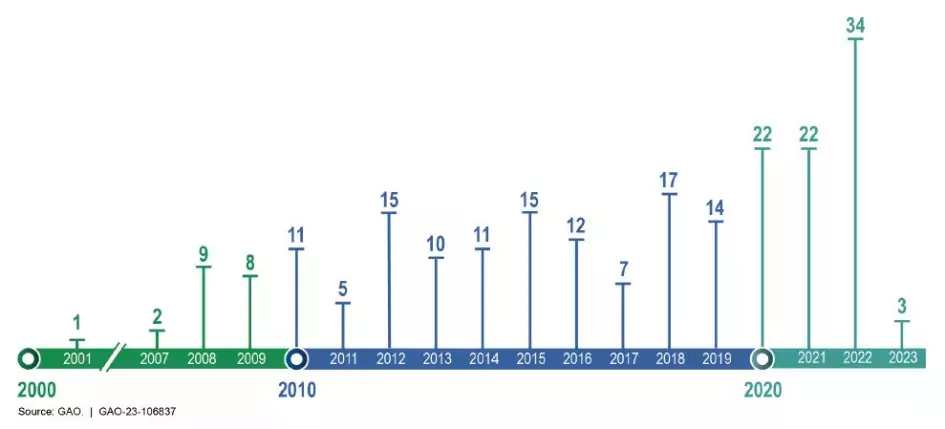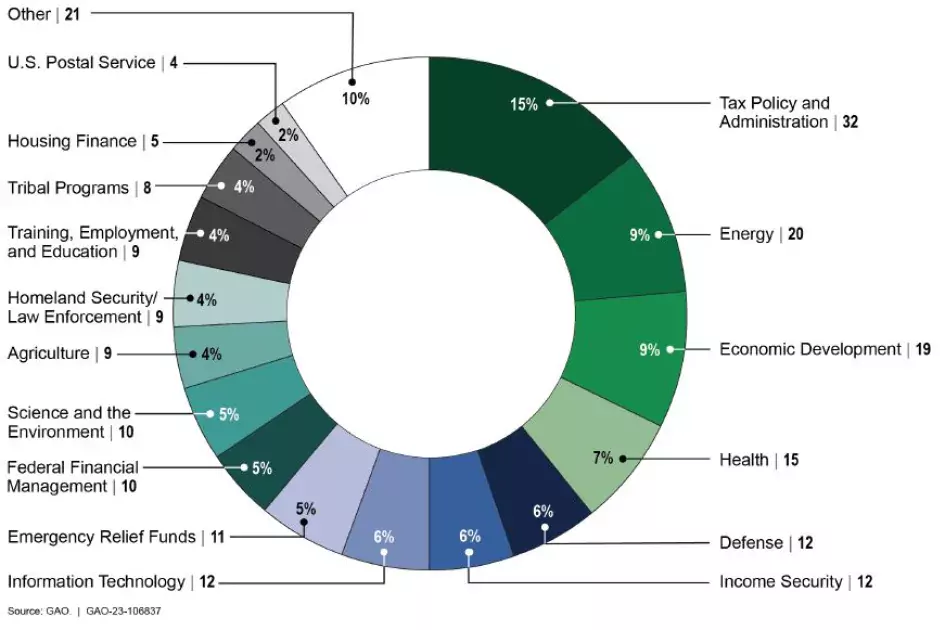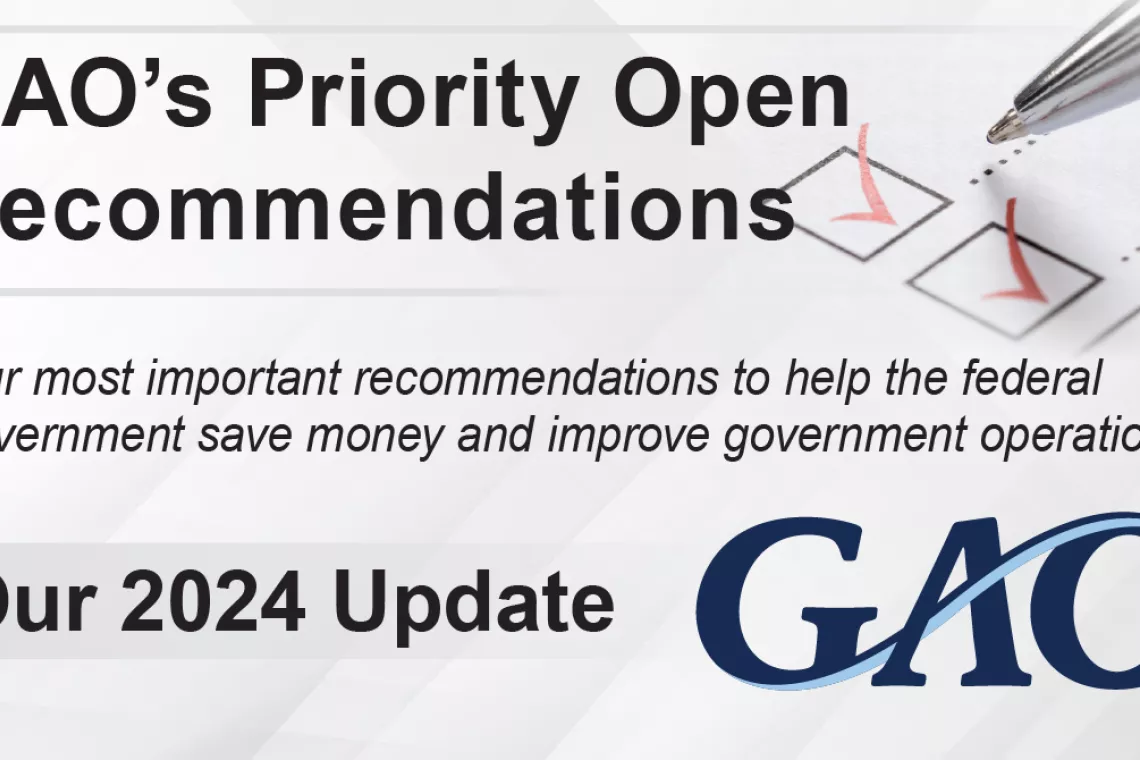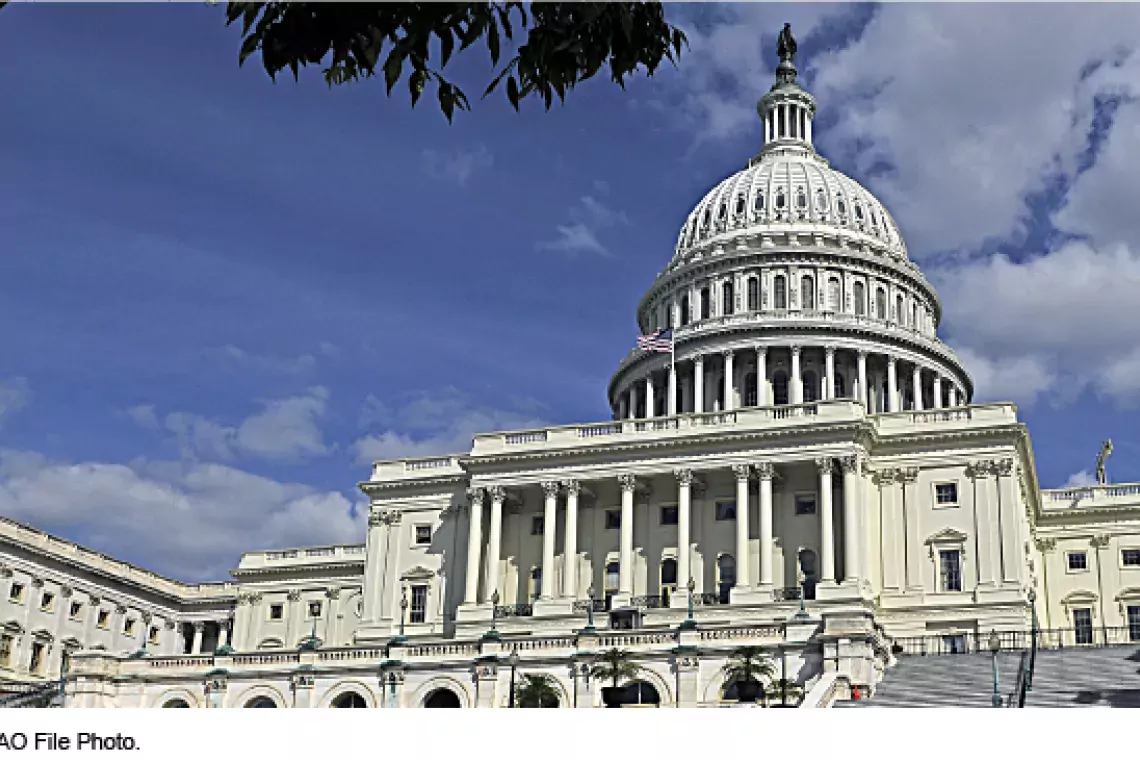It Matters! Our Recommendations for Congress Could Result in Billions of Dollars in Financial and Other Benefits
You may know that GAO makes hundreds of recommendations each year to federal agencies that would improve government programs and operations. But you might not know that we also make recommendations for Congress. We call these suggestions “matters for congressional consideration,” or more simply “matters.”
And they do matter!
Since 2000, we’ve raised more than 1,100 matters that would address challenges facing the nation and improve federal programs and operations. Congress has acted on the majority of them. But, as of June, there are still 218 that need action. What are these remaining actions?
Today’s WatchBlog post looks at our new report, also released today, on these open matters for Congress.
Image

Matters with substantial potential benefits
If acted on, our matters could produce substantial financial and other benefits for the nation. For example, in December 2015, we reported about how more hospitals were acquiring physician practices and/or hiring physicians to work as salaried employees. This led to increased billing for services performed in hospital outpatient settings instead of physician offices in areas where there was more hospital acquisition of physician practices. This increase could mean that Medicare pays higher rates for the same services. We recommended that Congress consider directing the Secretary of Health and Human Services to equalize payment rates between settings. Recently, the Congressional Budget Office estimated that this could result in $141 billion in financial benefits between 2021 and 2030.
In another example, from November 2022, we reported that federal disaster recovery programs are spread across more than 30 entities, making it difficult for communities to figure out who to turn to for help. We recommended that Congress should consider establishing an independent commission to recommend reforms to improve the effectiveness of the federal approach. These reforms may reduce the federal government’s fiscal exposure; improve service delivery to disaster survivors and Tribal, state, local, and territorial governments; and increase the speed of disaster recovery.
The newest and oldest matters…
Eighty-one of the 218 matters, or 37 percent, have been open for less than 4 years. The below graphic shows the distribution of the matters by the year we reported them.
Image

One of our newest open matters is from May 2023 and relates to the Department of Defense's most expensive weapon system—the F-35 aircraft. The program is now more than a decade behind schedule and $183 billion over original cost estimates. We recommended that Congress should consider taking steps to hold DOD accountable for achieving cost, schedule, and performance goals.
From October 2001, our oldest open matter for Congress remains highly relevant to addressing one of the issues on our High Risk List—improving oversight of food safety. The safety and quality of the U.S. food supply, both domestic and imported, are governed by at least 30 federal laws that are collectively administered by 15 federal agencies. The fragmented nature of the federal food safety oversight system has caused inconsistent oversight, ineffective coordination, and inefficient use of resources. In 2001, we recommended that Congress consider commissioning the National Academy of Sciences or a blue ribbon panel to analyze alternatives to how food safety duties are currently organized across government and report the results to Congress.
What topics are covered by congressional matters?
Open matters for Congress span a wide range of topics and involve many parts of the federal government. Some of the most common topics include, for example:
- Energy. Matters in this area pertain to the energy industry and regulatory agencies, oil and gas resources, alternative fuels, emissions, nuclear waste, and other energy-related issues. For example, in May 2017 and December 2021, we recommended, among other things, that Congress consider clarifying DOE’s authority to make decisions about how to manage and dispose of high-level radioactive waste from the Hanford, Washington site. Clarifying DOE’s authority to manage Hanford’s low-activity waste as something other than high-level radioactive waste and transport it outside Washington State for disposal could help clear the way for DOE to save tens of billions of dollars by pursuing less expensive treatment options.
- Information Technology. The information technology (IT) topic area includes IT acquisition; enterprise architecture; integration; cybersecurity; privacy; IT systems; and other IT-related issues. For example, in February 2022, we recommended that Congress consider reauthorizing the First Responder Network Authority (FirstNet), including its authority to collect fees. FirstNet exists to create a nationwide broadband network for first responders, such as police officers and firefighters. It reinvests fee revenue in network construction, maintenance, operation, or improvements. However, the statute terminates FirstNet’s authority in 2027. If Congress reauthorizes FirstNet, it would ensure that billions of dollars in revenues will be collected and used to support a first responder network.
- Health. Matters in this area cover health care services, facilities, personnel, costs, insurance, and reform, as well as preventing chronic health conditions. It also includes federal programs such as Medicare, Medicaid, and the military and veterans’ health systems. For example in August 2021, we recommended that Congress direct a federal entity to develop and implement a federal strategy to reduce Americans' risk of diet-related chronic health conditions. Spending for three diet-related chronic health conditions—cardiovascular diseases, cancer, and diabetes—accounted for about one-quarter of the $1.5 trillion in total health care spending in 2018. Federal government payers, which include Medicare and Medicaid, accounted for the majority of 2018 spending for treatment of these three diet-related chronic health conditions. A federal strategy for diet-related efforts could provide sustained leadership and result in improved, cost-effective outcomes for reducing Americans’ risk of diet-related chronic health conditions.
The below pie chart shows the number of open matters for Congress in each of the key topic areas. To see all of our open matters for Congress, visit our database of recommendations.
Image

- Comments on GAO’s WatchBlog? Contact blog@gao.gov





